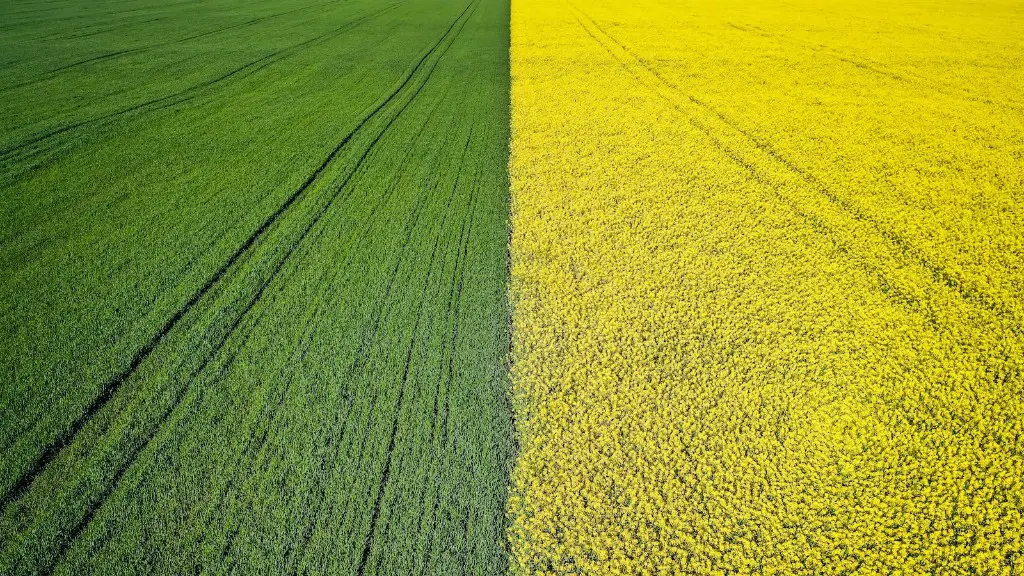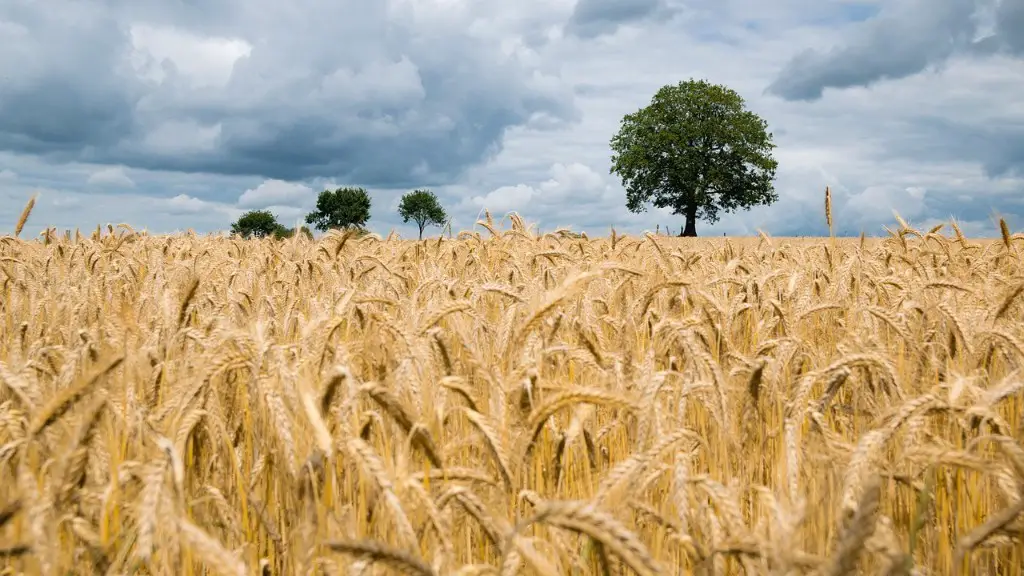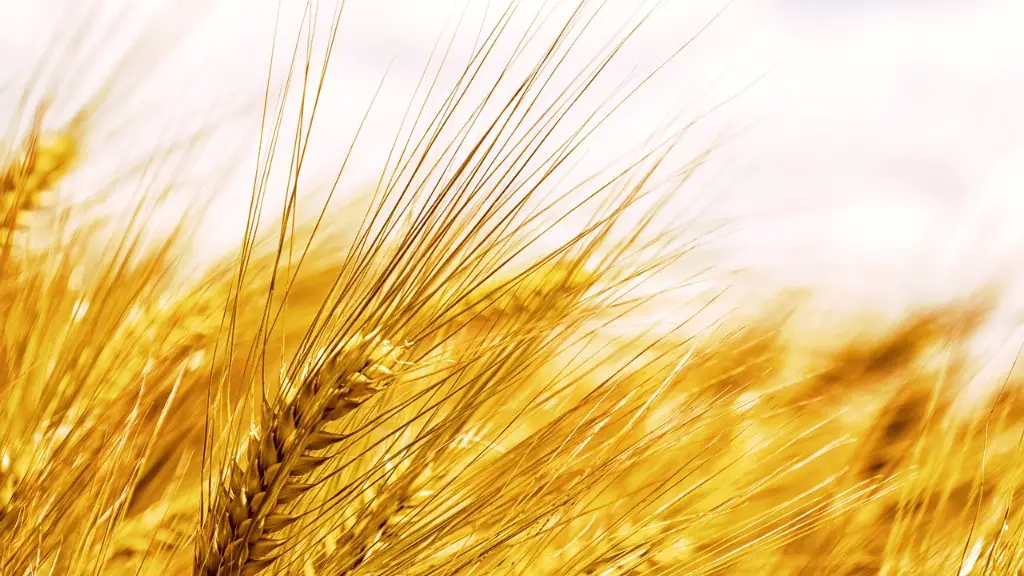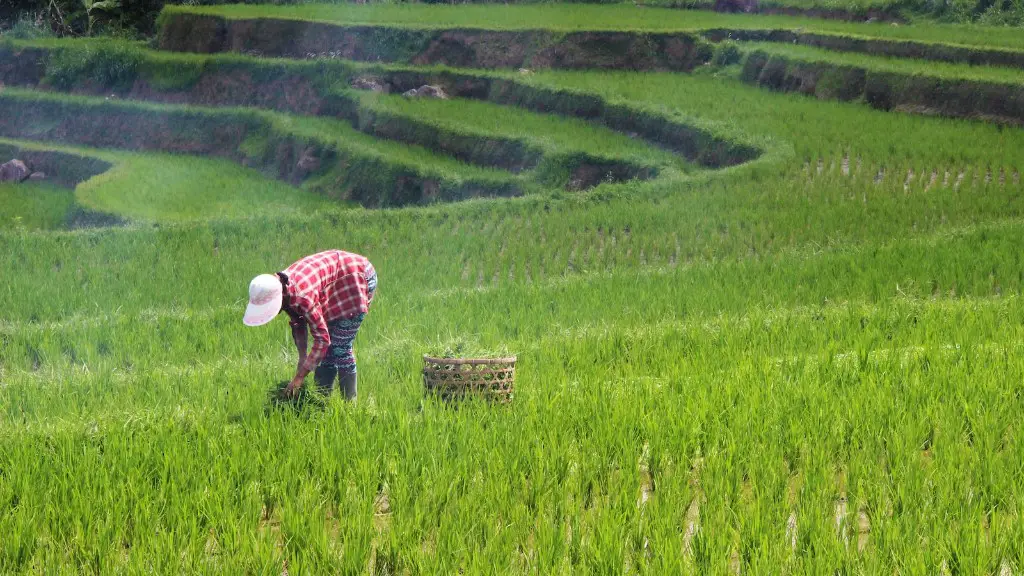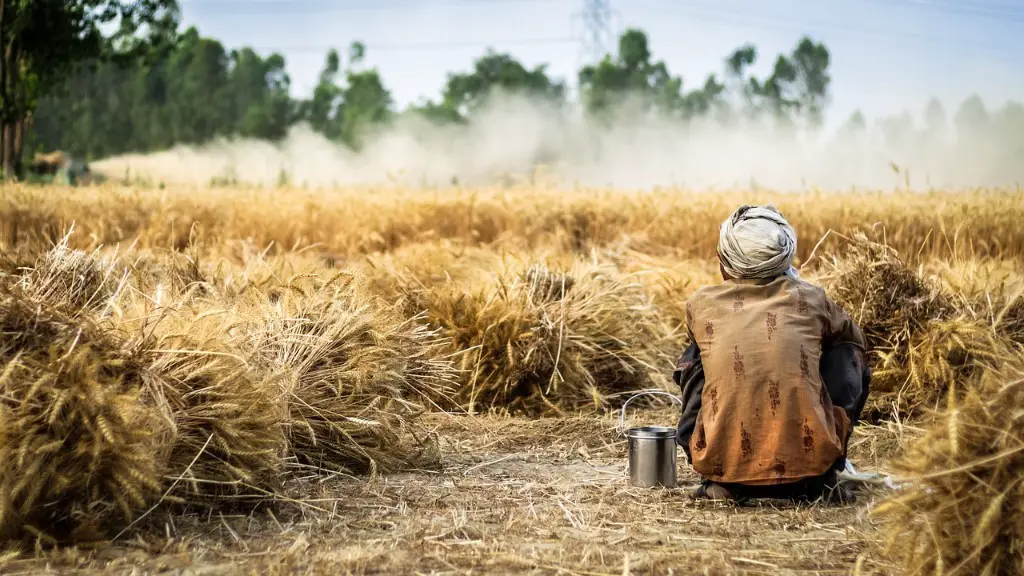The Department of Agriculture (DOA) has a pivotal role in supporting farmers and rural communities across the United States. It acts as an agricultural regulator and educator, helping to protect the nation’s food supply and developing strategies to increase agricultural yield and profitability. In addition, the DOA engages with government and international agencies, promoting research and partnerships to further the goals of building a safe, secure and sustainable food system in the US. In short, the DOA works to ensure that the nation’s farmers have access to the critical support and information they need to grow and cultivate the healthiest crops.
The DOA’s core responsibilities involve the promotion of sustainable farming practices and the implementation and enforcement of various US laws related to food safety and labeling, animal welfare, and natural resources conservation. The department also works with state and local agencies to support agricultural producers through programs and grants that give farmers the resources needed to stay competitive in the global agricultural market. Furthermore, the DOA is responsible for driving research into new technologies and practices designed to improve agricultural productivity, food safety and environmental sustainability.
The DOA also plays a key role in helping consumers make informed decisions regarding their health and food choices. The department works to provide accurate, research-based information to the public on food safety and labeling, nutrition and dietary guidelines, food additives, and new and emerging technologies in food production. Furthermore, the DOA issues warnings and recalls of food products that may be unsafe.
At the international level, the DOA works with foreign governments and international organizations to coordinate efforts that can further the global goals of food security and conservation. This includes the formation of joint research projects, the exchange of best practices, and the provision of technical assistance in areas such as trade regulations, biotechnology, and disease control. Finally, the DOA works with foreign embassies and consulates to ensure foreign countries can access the support and information needed to organize sustainable farming and food production systems in their countries.
Promote Farmer Development
As one of its core responsibilities, the Department of Agriculture works to foster the development of rural communities in the US. The DOA achieves this by providing grants, loans, and other financial assistance to farmers. This support helps farmers expand their operations, purchase new equipment and supplies, and diversify their income. Through such initiatives, the DOA facilitates the growth and success of small businesses in rural communities across the US.
The DOA also manages programs and initiatives designed to help farmers increase their efficiency and profitability. Such programs provide access to resources and capital for farmers, making it easier for them to launch and maintain successful agricultural operations. Additionally, the DOA administers tax and credit programs that help farmers access funds for business growth initiatives, such as leadership development, capital investments and product diversification.
The DOA also works with research organizations, universities and technological institutions to develop innovative farming techniques, monitor the impact of new technologies and techniques, and modify them based on feedback from farmers. This helps farmers stay abreast of new developments in agriculture and helps guide their decision-making.
Finally, the DOA helps to coordinate and deliver agricultural extension services to rural communities. Extension services provide scientific and practical advice to farmers, and they help support sustainable farming practices, such as eco-friendly farming and integrated pest management.
Improve Food Safety
The Department of Agriculture plays a critical role in improving food safety in the US. The DOA does this by establishing and enforcing regulations that ensure the food products produced and consumed in the US meet the highest government standards for safety, nutrition, and quality. The DOA inspects farms, manufacturers, and retailers to ensure food safety and hygiene protocols are met, and it can issue warnings and recalls of food products that may be unsafe.
The department also works to provide education to farmers, agribusinesses, and consumers on food safety topics such as proper food handling, labeling, storage, and temperature control. Furthermore, the DOA collaborates with state and local governments and private organizations to further research in food safety. Through these efforts, the department works to keep the nation’s food supply safe and secure.
The DOA also works to bring government and industry stakeholders together to discuss food safety issues and how to address them. Such interactions help to ensure that all stakeholders have the latest information on food safety regulations and developments, and they lead to the development of consensus-based solutions that can help the food industry adhere to safety standards.
In addition, the DOA coordinates with public health partners to monitor and respond to outbreaks of foodborne illness. The department regularly develops and implements public health interventions to reduce the risk of foodborne illnesses, including nutrition education initiatives and labeling requirements for specified food items. Such programs are designed to help keep the public safe by promoting informed food choices.
Protect Natural Resources
The DOA also serves as a resource for farmers and other stakeholders in the US by helping to protect our nation’s natural resources. The department works to support the implementation of conservation efforts that can help farmers protect soil, water, and air quality while still maintaining a profitable agricultural operation. Through such efforts, the DOA helps to protect our nation’s vital natural resources while also allowing farmers to produce food products in an economically and environmentally sustainable way.
The department works to promote the use of conservation practices through incentives such as government grants and tax credits. Additionally, the DOA engages with research institutions and universities to develop science-based advanced conservation tools and techniques, including new irrigation systems, soil conservation strategies, and efficient water use systems.
The DOA also works to improve access to natural resources for farmers and other stakeholders. This includes efforts to provide high-quality seeds and agricultural inputs to farmers, and to improve access to land for smallholder farmers who may not have the same resources as large-scale agricultural producers. In addition, the DOA works with governments and international organizations to develop additional strategies and infrastructure that can help ensure the most efficient use of resources and the ability of farmers to gain access to them.
Establish Sustainable Trade Systems
Finally, the DOA is responsible for establishing sustainable, fair trade systems for agricultural products. This involves engaging with governments, international organizations, and private companies to promote open markets and fair agricultural prices. The DOA also works to provide technical assistance and market information to farmers and other stakeholders in agricultural markets.
The department works to promote the development and implementation of regulations, standards, and policies that promote both fair trading practices and food safety. This includes the enforcement of US laws and international agreements related to intellectual property rights, customs, and international trade. Additionally, the DOA works with grain elevators, export firms, and grain inspection agencies to ensure the secure and efficient transport of agricultural commodities and other food products.
The department also works to connect the US with global markets, helping to create trade partnerships between the US and foreign countries. This includes identifying potential markets and negotiating trade agreements, as well as providing technical assistance to foreign partners to ensure the security of their food supply.
Support Research and Development
In addition to its other responsibilities, the Department of Agriculture supports initiatives related to research and development (R&D). This includes funding research institutions and universities to develop advanced farming and agricultural technologies, supporting the development of new food production techniques, and researching new animal breeds, crops, and varieties. The DOA also works to support the study and application of innovative agricultural methods, such as agroforestry, soil health, and water resources management.
The department also works to ensure that agricultural R&D is done in an ethical and responsible manner. This includes the development of international codes and standards related to animal testing and the ethical use of genetically modified organisms. Additionally, the DOA works with research institutions and private companies to ensure that research on food production and agricultural practices is conducted in a safe, responsible manner.
The DOA also works with state and local governments to ensure that smallholder farmers and other rural communities have access to the resources they need to take advantage of new technologies and techniques. Such resources include training and capacity building programs, technical assistance, and access to capital and seed financing.
Strengthen International Partnerships
The Department of Agriculture is also responsible for strengthening international partnerships in the agricultural sector. To this end, the DOA works with foreign embassies and foreign ministries to promote agricultural research, technology transfer, and sustainable development. The department also provides technical assistance to foreign governments in areas such as agricultural policies, food safety and labeling, and crop diversification.
The DOA also works to ensure that foreign countries have the resources and information they need to promote sustainable animal husbandry and food production practices. This includes the promotion of measures that can help protect the environment, such as integrated pest management, water conservation, and soil health.
The department also works to promote the development of international trade programs and agreements designed to ensure the secure and efficient trade in agricultural products. This includes the provision of technical assistance to ensure that foreign countries have the means to implement fair trading practices, as well as the identification of potential markets and trade partners.
In addition, the DOA works to strengthen the capacity of foreign countries and organizations to address global food insecurity. This includes the establishment of global food aid programs, the generation of timely and accurate food security information, and the promotion of efforts that help reduce food losses and waste.
